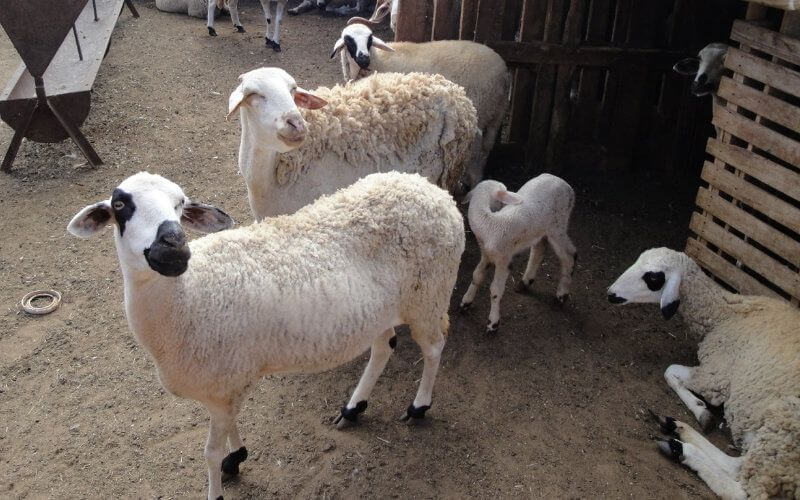Morocco Discourages Sheep Sacrifice for Eid al-Adha Amid Drought Concerns

In Morocco, measures aimed at preventing citizens from buying animals to sacrifice during Eid al-Adha have been observed. They are being directed towards abandoning the sacrifice.
At the end of February, King Mohammed VI had issued a call, inviting Moroccans to refrain from sacrificing sheep on the occasion of Eid al-Adha this year due to the persistent drought that has been affecting the kingdom for six years and has reduced the national herd. As Eid al-Adha approaches, measures aimed at preventing citizens from buying animals to sacrifice, by directing them towards abandoning the sacrifice, have been observed by Hespress. Information confirmed to the site by the president of the Moroccan Federation of Livestock Sector Actors.
"We have not received any decision imposing a ban on sales. But as professionals, we are not selling livestock out of respect for the royal decree. However, the majority of those who want to buy go to the market, goods arrive there, and so far, there is no official statement from the Ministry of Interior or the Ministry of Agriculture. But there are oral instructions to encourage people to respect the royal decision and to stop sales in certain markets," he stated.
The president of the Moroccan League for Citizenship and Human Rights explains the rationale: "Following the decision taken to prohibit certain citizens from slaughtering the Eid sacrifice as part of measures related to protecting the national herd, and in connection with the high royal directives calling for the preservation of animal heritage as a strategic lever for food security, we, at the Moroccan League for Citizenship and Human Rights, consider that this measure falls within the legal and regulatory framework of the State. It is a legitimate measure based on the principles of protecting collective rights, which may, in some cases, require restricting or temporarily suspending the exercise of certain individual rights, in a temporary and proportionate manner, in order to achieve a major general interest."
He will add: "We affirm that individual rights, as guaranteed by international human rights treaties, including the International Covenant on Civil and Political Rights (Articles 18 and 19), are not absolute, but can be restricted in accordance with the law, and without affecting their essence, especially when it comes to protecting public health, the environment or public order. These are the same principles that apply to this decision." For the official, "the right to sacrifice, despite its religious and social symbolism, cannot be considered a right that is not subject to restriction, especially when it comes to collective national prevention against a danger threatening animal wealth, and avoiding the return of epidemics that have already caused devastating economic and social effects, such as foot-and-mouth disease or peste des petits ruminants."
Researcher and writer Mountassir Hamada will say for his part: "What happened, in practice, a few weeks after the Minister of Habous and Islamic Affairs read the content of the royal message on this subject, is that we observed non-compliant behaviors in the way of interacting with the requirements of the message. This would have required the issuance of instructions from the Ministry of Interior to encourage citizens to collectively respect these requirements. Media institutions and digital platforms should also have been present in a much more marked way to support the contents of the royal message and strengthen compliance with its provisions."
Related Articles
-

Royal Rift: Macron and Morocco’s King Clash Over Pegasus Spyware Scandal
5 September 2025
-

Moroccan Cities Clash: Wedding Halls Spark Noise Pollution Crisis and Human Rights Debate
4 September 2025
-

Rif Protest Leader Zefzafi Breaks Silence: Patriotic Speech at Father’s Funeral Stirs Al Hoceima
4 September 2025
-

Illegal Beach Sand Mining Near Tangier Sparks Environmental and Economic Outcry
4 September 2025
-

Surveillance Footage Exposes Tourist Robbery Ring in Tangier Court Drama
4 September 2025